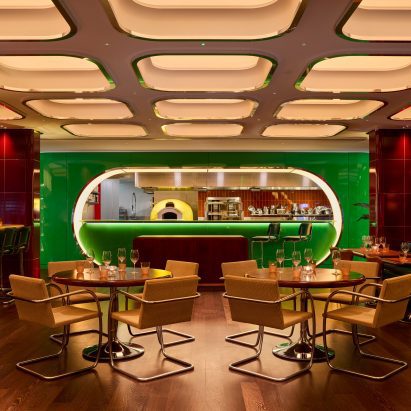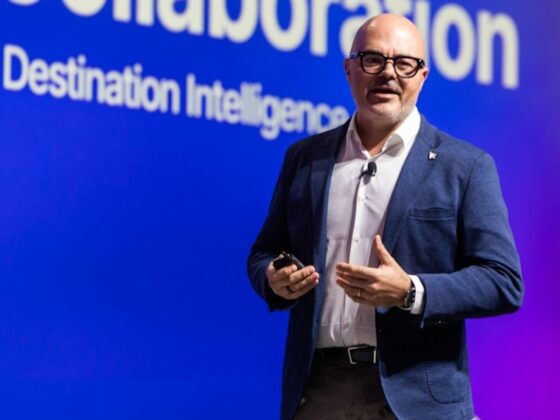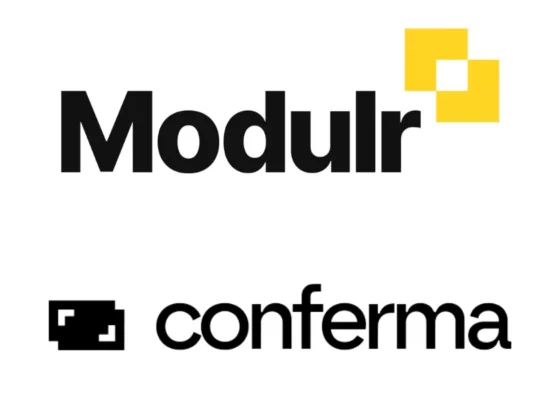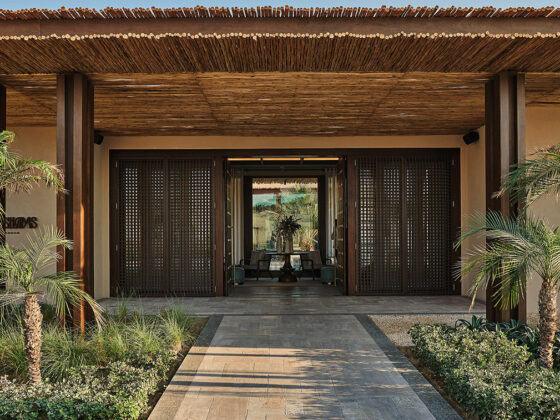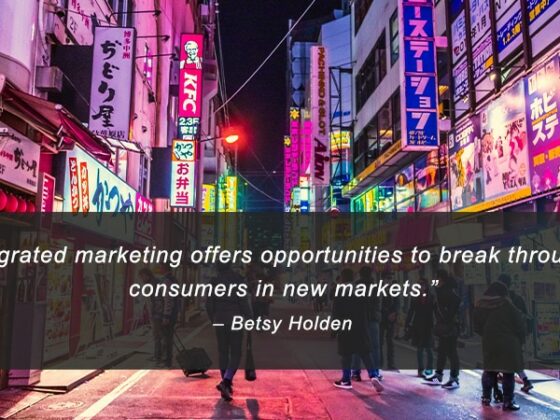Josiah:
Why invest in hotels? One of the biggest hotel investment conferences in the world the lodging conference is coming up next week and I wanted to explore the answer to that question in this episode.
Josiah: Of course, this show is not investment advice. You should speak with your financial advisor on how to manage your money. But I want all of us to talk more about the reasons for participating in the hospitality industry, not just as a brand designer or an operator, but as an owner, to help us learn about hospitality investment. Today we’re going to hear from Craig Sullivan, founder and president of the California Lodging Investment Conference. We’re going to hear from Michelle Jensen Session, co-owner of Kensington Investment Group and co-founder of Aquarius Hospitality, as well as Del Ross, who led sales and marketing for one of the biggest hotel companies in the world, advises the top global consulting firm on strategy and now also invests in hotels personally. But first here’s my conversation with Craig.
Josiah: I wonder if we could talk about what is the case for investing in hotels as an asset class. It’s obviously a sexy business. Hospitality is fun, it’s creative and that is compelling about it, but just from a purely financial perspective. Talk us through a little bit more about what’s the business case here. Why is it interesting? I try and say it’s not sexy because you get a lot of people.
Craig:
I get a lot of phone calls from people who go, well, I think it’d be really cool if you could talk about it. It’s cool to own a little boutique hotel and say hi to the guests. I said, yeah, it’s not so cool when you’re scrubbing toilets and changing the beds at two in the morning, but the thing that’s great about a hotel and a hotel lobby is basically my favorite place to be. I don’t care if there are five people or 200 people in that lobby. It’s either five or 200 different stories. Why are they there? Is it a business traveler? Is it a leisure traveler? Here comes the road warrior who’s just getting ready to jump on a plane to go to China or someplace, if you’re at the airport. But it’s that cash business. It’s that making people safe. It’s the hospitality. You’ve got to be a person that loves being around people. And if you look at our teams, some of our best industry leaders started out as hourly employees. They were dormant, they were bartenders and now they’re CEOs of hotel companies and they’ve worked their way through every phase and they get it In the back of their heads. They remember what it’s like to be that hourly employee and, if you think about it, we’re also the group that helps people create some really great memories when they’re family, when they’re traveling and staying. But it is also it’s a cash business and a full-service hotel. A boutique hotel is probably the best source of monetizing every square inch that you can imagine. It’s not just parking and $15 water bottles in some cases, which I disagree with, and I also disagree with resort fees, but it’s the restaurant. It’s a food and beverage component, it’s the you know if you’re going to a destination resort. It’s the kid’s camp, it’s everything on-site that they want you to take advantage of to enhance your trip and your experience. You look at Terranea in Los Angeles. It’s one of the best resorts in the state of California. You look at various others up in, whether it’s Monterey or San Diego, and some of these resorts have been around because of the sound, since Early in the 20th century and they’re just living history. One of my favorites to go to is Coronado. It’s that’s living history. So every hotel is a journey for me and it’s an economic engine. It’s, it’s a way of also building generational wealth if you’re not coming in there to prove a performer and reposition it and Sell it off and say five years I’ve now there’s nothing wrong with that and I’ve been a part of some of those deals but that’s just not where my interests are today. I’m about a long-term hold and, with my partners and you know, building generational wealth. So you know it’s it’s a great way to do that and it’s a great way to be, you know, in charge of your own destiny as well.
Josiah:
I love it Craig, and I appreciate you mentioning that last piece because I think it will be people here that are Listening that are not investors. But I do want more people to think you know what it looks like for me to be an investor and owner for the long term, right, and we, you know people listening to the show love, love the business of it, but it’s important to have some skin in the game, right, be part of that kind of economic upside.
Craig:
I agree. And if you’ve got the right partners and you end up having a passion for it and it’s not just simply a cash investment that you’re looking to get a Check every quarter or annually, whatever your scenario is In the investment group, your partners can teach you a lot. Now I’m not one that I want to know about operations. I’m a deal guy. Okay, I love the meat and potatoes of the deal. I love going through the performer and talking to the ops people and go, okay, can we achieve this rate? Can we monetize this this way? How can we bring new life into this hotel? Is it by putting a new brand on it? I, you know, if you’ve got the right brand, a lot of people feel that’s. That equates to about 25% of the value of the hotel asset, the physical asset. It also makes it easier to get alone, especially if you don’t have a lot of experience. You know, and you’re trying to step up from possibly being in the owner and manager of a, you know, independent hotel and you’re trying to move into choice Wyndham, Marriott, Hilton, IHG and Red Roof and various others. Find that brand. That’s gonna help you so that you can understand that. Who’s gonna be willing to teach you. If you’ve got partners and you’re coming into this, you know there isn’t a bank or a brand that’s going to touch you if you don’t have a management company, if you’ve got no experience. Find the management company that you’re comfortable with. There are some great management companies out there that can help you, that can teach you, and help you grow your empire. You don’t want to get lost in the weeds of the day-to-day operation of the hotel.
Josiah:
All right. Now that you’ve heard from Craig, I want you to hear another perspective. Here’s my conversation with Michelle Jensen Session on this what’s the case for investing in hospitality?
Michelle:
One of the things that we did at Kensington Investment Group is this is a family business that’s been around for 40 years. Diversity is a huge part of our portfolio. We own everything from hotels to multi-family to retail to triple-net-lease restaurants, and we’ve had shopping malls and all this stuff. Each of the different asset classes really has a place in your portfolio. Hotels are great for inflation. The rate changes every single day in a way that some of your other assets will not. For example, we own some office buildings where 15, 20-year leases those rates are not going to change. At the same time, hotels fluctuate when it’s good it’s good and when it’s bad, it’s bad. Having that diversity means that when you come across a moment, like COVID, where your different assets are performing in different ways, being able to flex that rate in a way gives you incredible flexibility. For a long-term investor, Hotels make a ton of sense.
Josiah:
Well, it’s interesting to hear that. We’re obviously in a very dynamic environment now and there are always cycles to any business. I think you touch on something that is a long-term outlook. I’m curious if you look at hospitality as a property type within commercial real estate, as compared to some of these other property types that you invest in, do you see more levers for value creation in hospitality that is compelling to you?
Michelle:
It’s a business and it is very different from some of the other investments because it is a business and it’s high labor. However, there are so many opportunities to create ancillary revenue, to market and work within your community, and to work with the brands or whatever it may be. There’s a ton of opportunity to make money in a creative and different way that you just can’t with the other products. So the short answer is yes, Hotels are challenging, but they’re also really fun. If you’re passionate about it, you can find different ways to really make it work for you.
Josiah:
Finally, I want you to hear from Del Ross about this. Part of what you do now is invest in hotels. Why is that? A lot of people that I know will spend their career working in hospitality and they’ll take the money they earn from that and invest in other asset classes. But you’ve spent your career in hospitality and you invest in hotels, so you’re an owner investor. Why invest in hotels?
Del:
I do think it’s important to diversify. When I first invested in hotels, I was on the other side of that business, so I was on the franchising side. And I got a chance to see smart owners who chose the right location and operated their hotels, taking it full advantage of all the tools and opportunities that are out there, do very, very well in those investments. So I’m not a highly prolific hotel investor. I’m very selective and choosy. I understand a lot about the commercial dynamics of markets and where an opportunity exists that I understand and there’s a good developer and a good operating partner, I’m highly interested and motivated because, if you do it well, there are a few industries where you can generate the kind of cash on cash returns that the hotel industry can generate. I’m on the flip side. There are also a few industries that are as risky because this is one of those industries that you know we can’t sell last night’s unsold room. If we have significant demand generation from one source and that source disappears, we could be in a lot of trouble and a lot of us went through that during the COVID era.
Josiah:
I find it fascinating if you compare, even just within real estate, another type of real estate like industrial real estate. If you’re investing in warehouses, you know you have these buildings on maybe the outskirts of a city. It’s a simple business, but there’s so much within hotels. That’s exciting but, as you mentioned, it can also become risky and I’m curious how you would say your investment strategy differs from other investors. You mentioned the commercial angle and it sounds like that’s an opportunity to unlock investment performance.
Del:
For me, it’s a given that you have a good operator and a good development partner right, those things. It’s not a big industry. There are only a few hundred, maybe a couple of thousand entities that are serious and would work with folks like me. You know them and you get to know who is really good, who operates in a certain way. A lot of times it’s operating philosophy or development philosophy, not whether they’re good or bad. So you get to know those folks, assuming that that’s solid. It’s all about the demand generation profile of that market, the commercial realities. Where are the guests coming from? Why are they traveling there? Is this something that is steady and very predictable, or is this something that’s incredibly volatile and you don’t know where it’s coming from next? Obviously, I like predictable. I like to know that there are certain sources of demand that you can count on, that you can basically make your financial targets by those reliable, predictable ones, and then everything above that is gravy. That’s the scenario I look at and, having spent a career on the commercial side of the business, I understand in most cases whether a market would meet those criteria, meet my criteria for being a robust and long-term, attractive commercial opportunity market.
Josiah:
I hope you found this episode helpful and would love to hear your thoughts, questions, and experiences, so let me know in the Hospitality Daily LinkedIn page. I encourage you to talk with your financial advisor about this educate yourself about what investing in hospitality can look like and think about if it should play a role in your future. It’s something I’m spending a lot of time learning about myself and would love to hear from you.


